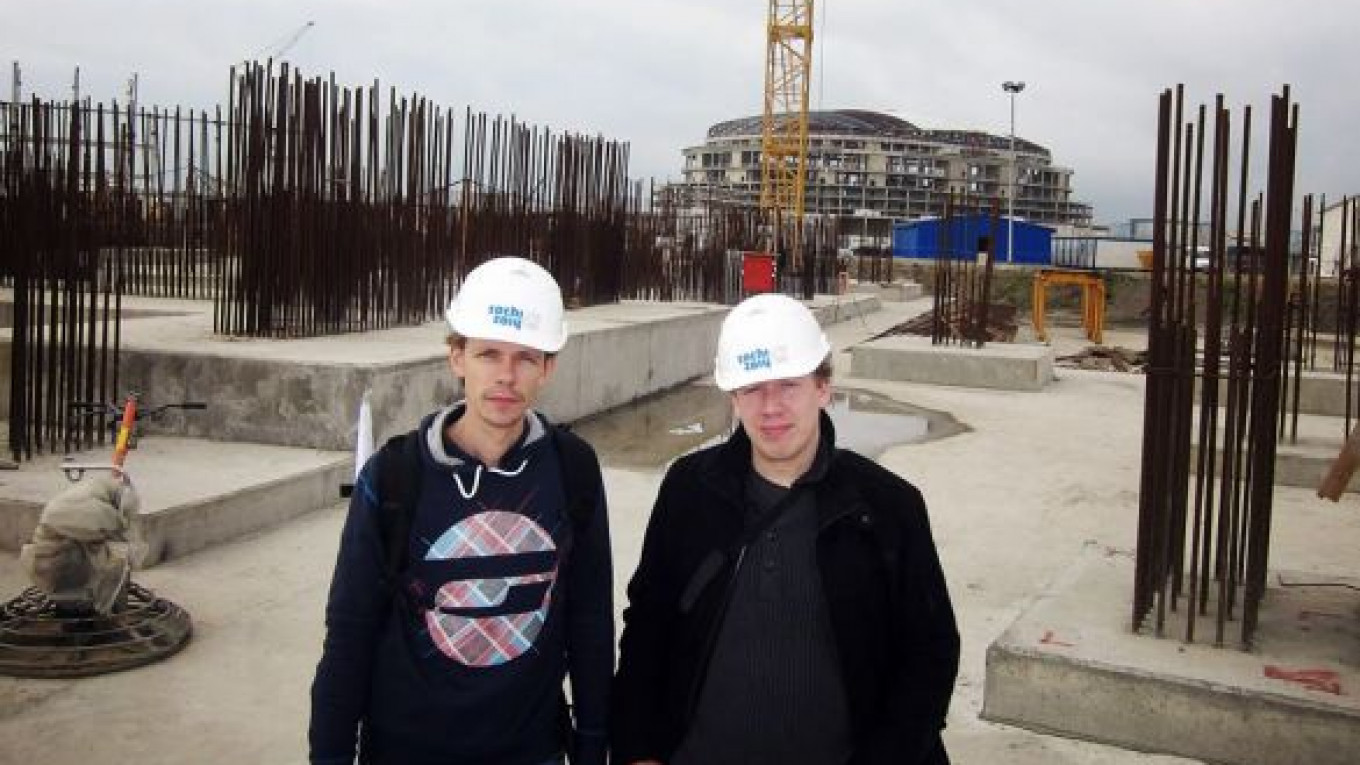An award-winning Dutch photojournalist who has been working in Russia's turbulent North Caucasus region for five years, has been refused a Russian visa in what he says was likely an attempt to suspend his critical reporting ahead of the upcoming 2014 Winter Olympic Games in Sochi.
Rob Hornstra and his colleague, writer Arnold Van Bruggen, have produced a series of reports from Sochi and its surrounding areas as part of a project that has seen the pair interview local residents to document ongoing trouble and human rights violations in the North Caucasus. ?
Hornstra, who planned to take part in a cultural program in Moscow with a major exhibition set to open Oct. 18 as part of the 2013 Netherlands-Russia bilateral year, said the Dutch Embassy had asked Russian authorities to cite a reason for the visa refusal but that no official explanation had been provided yet. The Dutch Embassy could not be reached for comment.
"This is, of course, a question for the Russian authorities," Hornstra said. "It probably has to do with our work in the North Caucasus. That is what most people think," he said in e-mailed comments, adding that he and Van Bruggen planned to continue their work in the region after the games, which they called "the anniversary party of Putin's 15-year reign."
The Sochi Project was launched by Hornstra and Van Bruggen in 2009 after Sochi was announced as the host city of the 2014 Winter Olympics.
In an interview with Lenta.ru in 2012, Hornstra said the main aim of the project was to determine why there were ethnic tensions in the region and how these tensions could influence the Sochi Games, as well as how the games could influence the lives of the region's residents living below the poverty line.
"All the major terrorist attacks in Russia have their origin in the North Caucasus. The region is the worst nightmare of the Sochi 2014 organizers: Will they be able to keep the attacks at bay?" Hornstra and Van Bruggen said in one of the articles written for the Sochi Project.
In 2012, Hornstra was awarded the World Press Photo prize for his Sochi Singers series, made as part of the Sochi Project and dedicated to restaurant singers in Sochi.
He said that it was challenging to work in Russia and that the Russian government had become more oppressive toward journalists in recent years. He also said that during their time in the North Caucasus, he and Van Bruggen had been followed, threatened and arrested several times, and sent to court once.
"The migration service wanted to deport us, but the judge decided differently and only gave us a fine. It is quite difficult to work in the North Caucasus, with special laws that prohibit foreigners from entering certain towns or places that are not made clear until after you have already entered those places," he said.
Russia regularly bans foreign journalists reporting on sensitive political or human rights topics from coming to the country, but this marks the first time since the collapse of the Soviet Union that a Dutch journalist has been refused entry, Hornstra said.
In most cases, the Russian authorities cite a law that allows them to ban someone from entering for reasons of national security.
Van Bruggen, who expects to find out the results of his application this week, said he was not counting on getting a visa.
"I expect it will be a no, because I have been in exactly the same places [as Hornstra] over the past five years, and we have done it all and published books and stories together," he said.
Contact the author at [email protected]
A Message from The Moscow Times:
Dear readers,
We are facing unprecedented challenges. Russia's Prosecutor General's Office has designated The Moscow Times as an "undesirable" organization, criminalizing our work and putting our staff at risk of prosecution. This follows our earlier unjust labeling as a "foreign agent."
These actions are direct attempts to silence independent journalism in Russia. The authorities claim our work "discredits the decisions of the Russian leadership." We see things differently: we strive to provide accurate, unbiased reporting on Russia.
We, the journalists of The Moscow Times, refuse to be silenced. But to continue our work, we need your help.
Your support, no matter how small, makes a world of difference. If you can, please support us monthly starting from just $2. It's quick to set up, and every contribution makes a significant impact.
By supporting The Moscow Times, you're defending open, independent journalism in the face of repression. Thank you for standing with us.
Remind me later.


